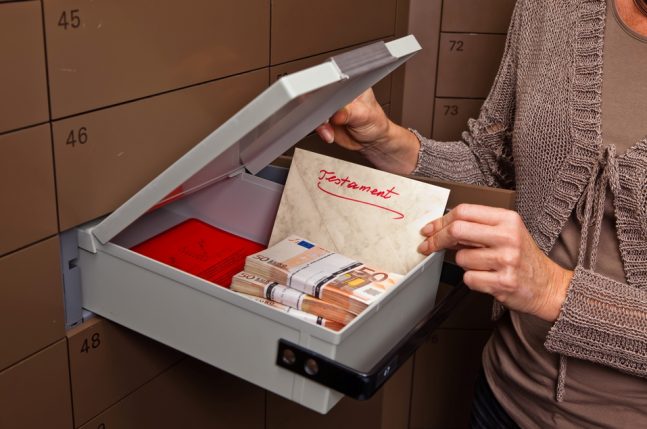
As a Wills and estates lawyer, I often come across clients that underestimate how important correct Will storage is. You’ve finally got around to making a Will – what happens next to ensure it’s safe? You need to know where to store your Will. Your Will is an important legal document and needs to be kept in a safe and secure place after being executed (signed and witnessed).
Overview:
- Will storage in South Australia
- Where can I store my Will for free?
- Best Will storage practices
- Damaged Wills
Probate applications
The law in South Australia requires that the original Will must accompany an application for a grant of probate. You can avoid a myriad of problems, delay and expense by ensuring not only that your Will is stored safely and securely in pristine condition, but that your Executor can find it.
Where to store your Will in South Australia
Currently in South Australia, there is no central Wills storage area or register of Wills. In certain limited circumstances the Supreme Court Register of Probates provides, for a fee, secure custody for private Wills (Division 4 of the Administration and Probate Act, 1919).
In most cases, the storage of a Will is entirely in the hands of the will-maker. So, where to store your Will? There is no single correct answer as to where your Will should be stored as everyone’s circumstances are different.
Where can I store my Will for free?
Often clients choose to store their original Wills in a secure document safe at home, a bank safe deposit box, or simply in a filing cabinet at home together with other important documents such as birth and marriage certificates.
At Beger & Co, we do not retain original Wills but we will keep a copy until the will-maker dies or makes another Will. We provide our clients with the original Will for their safekeeping.
If using a bank safety deposit box, make sure you check what the bank requirements are for accessing the deposit box upon your death. Some banks require a certified copy of the original Will to prove the identity of the Executor or a grant of probate, which creates problems if the box cannot be opened without the Will and the Will cannot be accessed without the box being opened! If you have any questions about this, contact one of our Wills and estate lawyers.
If the Will is kept at home, it is likely that it will be found when friends or family members sort through your paperwork and effects. In order to deal with an estate, one of the most important things is for the Executors to create a list of your assets and liabilities. Therefore, often it makes sense to store your Will amongst your other important legal and financial documents so that it can easily be found after your death.
You should also be sure that there are copies of your Will kept separate from the original, in case of disaster such as a fire (in this situation it would be possible to obtain a grant of probate on a copy of the Will). If you do not have close family or friends who can retain copies, you should ensure that your estate planning solicitor, accountant and/or financial planner knows about your Will or has copies.
Best & safest Will storage practices
Deciding where to store your Will is only step one in the process; wherever you choose to store your Will, you should take care to keep it in pristine condition. We recommend the following:
- Place it in an envelope or plastic packet
- Do not make any marks or alterations to your Will
- Do not remove the staples, binding or seal to photocopy or scan it; and
- Do not attach any pins, paper clips, staples or the like to your Will.
Damaged Wills
If there is any damage to the Will or any holes or marks on the paper, it may raise the question as to whether the Will has been tampered with or concerns as to the validity of the Will. If these concerns are raised, they will need to be explained by an affidavit, which will not only delay the grant of probate but increase the legal costs to your estate.
We provide all our clients with suitable storage envelopes and photocopies of their Wills, so there should be no need for you to unnecessarily handle your Will following its execution.
——
Your Will is a private and confidential document and there is no requirement on you to inform your Executor or your beneficiaries of the contents of your Will, or provide them with a copy. However, it is important that your Executors know where to find your Will and who prepared it in case they have any questions.
So, now you have some ideas as to where to store your Will. Although your Will must be kept in a safe place, do not try to hide your Will. If your Will cannot be found after your death it may be presumed that it has been intentionally destroyed and therefore revoked. Although your Executor may be able to prove otherwise, the result could be that your estate is distributed according to the Intestacy Rules, or as set out in an earlier Will.
The purpose of making a Will is to avoid dying intestate, ensuring that your wishes are honoured upon your death. To ensure that this happens, it is vital that your family and friends are able to locate the Will upon your death and that it is in the same condition as the day it was signed. Signing the Will is not the end of the matter; you need to take steps to make sure your Will is appropriately stored.
For further information please contact Michelle Crichton on 8362 6400 or email Michelle Crichton. Join our mailing list to receive updates and advice on current issues.







